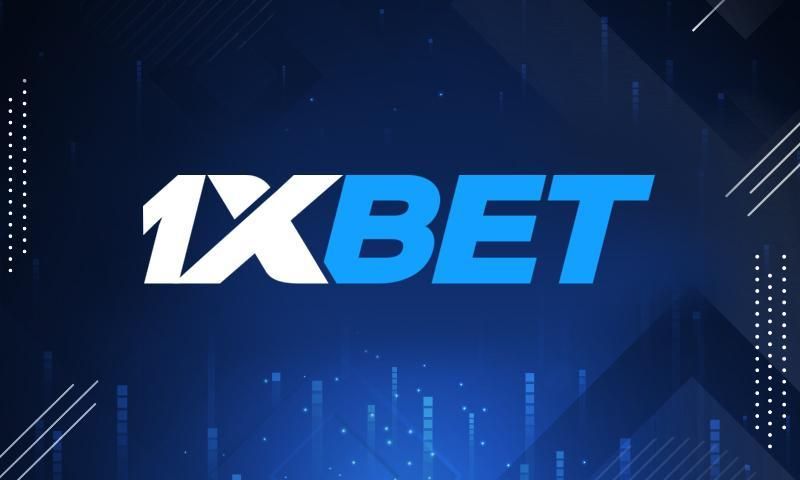
As the industry continues to evolve, many users look for reliable platforms and convenient ways to place wagers on their favorite sports and events. For iOS users considering app options, one convenient resource is online betting 1xbet download ios, which illustrates how bookmakers prioritize mobile accessibility to capture a growing audience.
Online betting has transformed from a niche pastime into a major global market over the last two decades. Advances in internet infrastructure, mobile technology, and data analytics have turned sportsbooks into sophisticated platforms that offer everything from traditional pre-match markets to in-play wagering, exchange betting, and numerous novelty markets. This expansion has created opportunities for both casual players and professional bettors, but it has also brought new challenges related to fairness, regulation, and responsible gambling.
One of the most visible trends in recent years is the migration to mobile-first experiences. Bookmakers invest heavily in responsive websites and native apps to ensure seamless bet placement, live streaming, and instant access to account features. Mobile apps allow users to receive push notifications about odds changes, cash-out opportunities, and promotions, making betting more dynamic and engaging. As a result, the user interface, speed of live updates, and reliability of an app are often the deciding factors when players choose a provider.
Market variety has also increased dramatically. Traditional sports like football, basketball, and horse racing remain core verticals, but esports, niche sports, and entertainment markets have gained prominence. Esports betting, fueled by younger demographics and streaming culture, presents unique dynamics because matches are frequent, data-rich, and often subject to different scheduling patterns than conventional sports. Meanwhile, in-play or live betting—where odds are adjusted in real time as events unfold—requires instant data feeds and robust risk management from operators.

Understanding odds and implied probabilities is a fundamental skill for anyone who wants to approach online betting intelligently. Decimal, fractional, and moneyline formats are just different representations of the same underlying probabilities. The key is converting odds into implied probability and comparing that to your own assessment of an event’s likelihood. When your estimated probability exceeds the implied probability implied by the bookmaker’s odds, you may have what is known as a value bet. Consistently finding value, however, requires research, discipline, and sometimes specialized models or tools.
Bankroll management separates casual gamblers from those who treat betting as a long-term pursuit. Setting a dedicated bankroll, using flat-stakes or percentage-based staking plans, and avoiding emotional bets after losses are essential practices. A common guideline is to risk only a small percentage of your bankroll on any single bet—typically between 1% and 5%—to reduce the risk of ruin and to withstand variance. Keeping a clear record of your bets, stake sizes, and outcomes helps identify strengths and weaknesses in your strategy over time.
Data and analytics play growing roles in online betting. Publicly available statistics, advanced metrics, and third-party prediction models enable bettors to craft more informed strategies. Sharp bettors often combine statistical models with qualitative insights such as injury news, lineup announcements, and situational context like travel fatigue or weather conditions. Conversely, public money and market sentiment can influence prices; understanding how lines move and why sharp action versus recreational action matters can help identify profitable opportunities.
Regulation and compliance are central to the industry’s reputation and sustainability. Licensing, anti-money laundering procedures, identity verification, and responsible gambling measures are standard requirements in most regulated jurisdictions. For consumers, choosing a licensed operator provides a degree of protection: clear terms and conditions, dispute resolution channels, and safeguards for funds. Regulatory frameworks vary widely by country and state, so bettors should verify the legal status of online betting in their location and prefer operators with transparent licensing information.
Security and privacy concerns go hand in hand with regulation. Reputable bookmakers use encryption, secure payment gateways, and multi-factor authentication to protect customer accounts and financial transactions. Payment options are diverse, from credit and debit cards to e-wallets, bank transfers, and cryptocurrencies in some markets. Withdrawal times, transaction fees, and verification procedures differ between providers, so comparing these factors matters when selecting a bookmaker.

Promotions and bonuses are powerful customer acquisition tools for bookmakers, but they come with caveats. Welcome bonuses, free bets, and enhanced odds can provide short-term value, but their terms often include wagering requirements, minimum odds, and time limits. Reading the fine print and understanding rollover conditions ensures you can actually benefit from an offer. Many experienced bettors prefer smaller, more flexible promotions or choose operators with straightforward loyalty programs.
Live streaming integrated into betting platforms has changed how fans consume sports. Watching an event while having a running market to exploit increases engagement and offers fresh betting angles. Cash-out features, partial cash-outs, and editable bets add further flexibility, allowing bettors to manage risk mid-event. Such features require careful use; while they can lock in profit or limit losses, they also introduce new decision-making that can lead to suboptimal outcomes if used impulsively.
Responsible gambling must be a priority for both operators and players. Self-exclusion tools, deposit limits, reality checks, and access to support organizations help mitigate harm. Players should set personal rules—such as predetermined loss limits, finite session lengths, and never betting to recover losses—and seek help if gambling interferes with daily life. The social and emotional costs of problem gambling can be severe, so built-in protections and educational resources within platforms are essential.
For those looking to improve, practical steps include focusing on a limited number of markets, learning the nuances of bookmakers’ pricing, using statistical tools, and maintaining disciplined bankroll management. Networking with other bettors, reading strategy resources, and experimenting with model-based approaches can accelerate learning. Nevertheless, humility is important: variance is real, and even the best strategies can struggle over short time horizons.
In summary, online betting offers a diverse and rapidly changing landscape with opportunities for entertainment and, for some, long-term profitability. Mobile technology, expanded markets, and better analytics continue to shape the sector, while regulation and responsible gambling remain critical for consumer protection. Whether you are a casual bettor or someone aiming to develop a more systematic approach, prioritize licensed operators, protect your bankroll, and maintain disciplined habits that keep betting a controlled and enjoyable activity.
